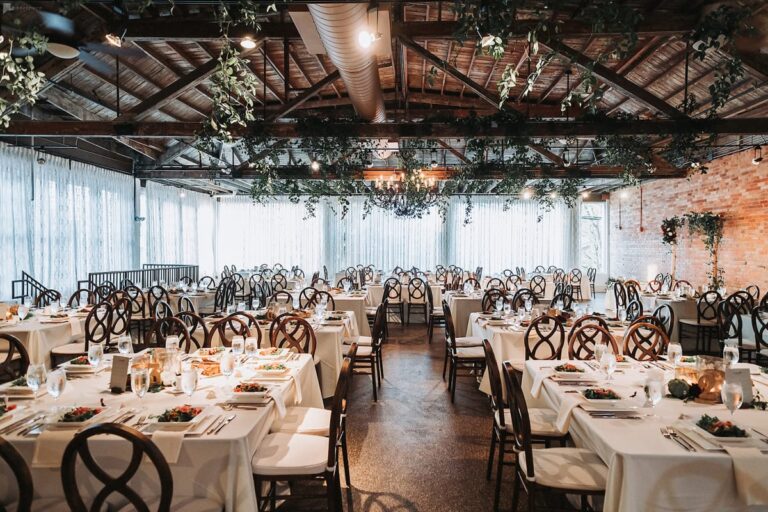Are you passionate about events and looking to venture into the lucrative world of event rentals? Starting an event rental business can be an exciting and rewarding journey. From weddings to corporate events, the demand for rental services is steadily growing, making it a profitable business opportunity. In this comprehensive guide, we will delve into the essential steps and strategies on how to start an event rental business successfully. Whether you are a seasoned entrepreneur or a novice in the industry, this blog will provide you with valuable insights and practical tips to kickstart your event rental business and set you on the path to success.
Introduction: Exploring the Event Rental Industry
Are you looking to venture into the lucrative event rental industry? Understanding how to start an event rental business is crucial for success. This industry offers a diverse range of opportunities, from party supplies to equipment for corporate events.
Current Trends in Event Rentals
Keeping abreast of the latest trends is essential for staying competitive. In the current year, sustainability and personalized experiences are key drivers in the event rental sector.
Market Analysis and Opportunities
Before diving in, it’s important to conduct thorough research on the market demands. Identify your niche within the industry and leverage data-driven insights to capitalize on emerging opportunities.

Market Research: Identifying Opportunities and Trends
Market research is a crucial step when starting an event rental business. It helps you understand the demand, competition, and trends in the industry. By conducting thorough research, you can identify opportunities that will set your business apart and capitalize on emerging trends.
Utilizing Online Resources
Start by leveraging online resources such as industry reports, news articles, and social media platforms to gather insights into the event rental market. Look for patterns, customer preferences, and gaps in the market that you can fill.
Utilizing online tools like Google Trends can also help you track the popularity of different event rental services over time.
Networking and Industry Events
Attend industry events, trade shows, and networking gatherings to connect with other event rental professionals. These interactions can provide firsthand knowledge about current trends, challenges, and opportunities in the market.
Networking with suppliers, event planners, and vendors can also help you establish valuable partnerships and stay updated on the latest industry developments.
Business Plan: Crafting Your Vision and Strategy
When starting an event rental business, crafting a solid business plan is crucial to mapping out your vision and strategy for success. This plan will act as a roadmap to guide your business decisions and outline your goals and objectives.
Market Research and Analysis
Conduct thorough market research to understand your target audience and competitors. Analyze industry trends and customer preferences to gain insights into demand and pricing strategies.
Financial Projections
Develop detailed financial projections that include startup costs, operating expenses, and revenue forecasts. This will help you assess the viability of your business and secure funding from investors or lenders.
Legal Requirements: Navigating Permits and Regulations
When starting an event rental business, it’s crucial to be aware of the legal requirements surrounding permits and regulations to ensure compliance and smooth operations.
Obtaining Permits
One of the first steps is obtaining the necessary permits for operating an event rental business. This may include zoning permits, business licenses, and other specific permits depending on your location.
Failure to secure the required permits can result in fines or even the closure of your business, so it’s essential to research and follow the legal requirements.
Regulatory Compliance
Adhering to regulatory standards is vital to ensure the safety of your customers and the success of your business. Stay informed about industry-specific regulations and maintain compliance with them.
- Equipment Safety: Regular inspections and maintenance of rental equipment are crucial to meet safety standards.
- Insurance Coverage: Secure liability insurance to protect your business from potential risks and liabilities.
Logistics: Managing Inventory and Suppliers
Efficient management of inventory and suppliers is crucial for the success of your event rental business. With the increasing demand for event rentals, staying on top of your inventory and maintaining solid relationships with suppliers can give you a competitive edge in the market.
Inventory Management
Implementing a robust inventory management system is essential. Keep track of all your rental items, their availability, and condition. Utilize inventory management software to streamline the process and prevent overbooking or stockouts. Organize your inventory strategically to easily fulfill customer orders.
Regularly conduct audits to ensure accuracy and update your inventory based on demand analysis. Investing in quality storage solutions and proper labeling can improve efficiency and overall customer satisfaction.
Supplier Relationships
Building strong relationships with reliable suppliers is key to securing quality rental items and timely deliveries. Communicate effectively with your suppliers to ensure smooth transactions and negotiate favorable terms.
Collaborate with suppliers to stay updated on new trends and maintain a diverse inventory that meets customer demands. Trustworthy suppliers can also offer discounts or priority services, enhancing your business’s efficiency and profitability.
Marketing Strategy: Attracting Clients and Building a Brand
When starting an event rental business, a solid marketing strategy is essential to attract clients and build a strong brand presence in the market. Here are some key tactics to consider:
Utilize Digital Marketing Channels
Utilize social media platforms like Facebook, Instagram, and LinkedIn to showcase your rental offerings and engage with potential clients online. Leverage SEO techniques to optimize your website for the keywords related to “how to start an event rental business”.
Engage in email marketing campaigns to reach out to prospects and keep them updated about your latest rental packages and promotions.
Collaborate with Event Planners and Venues
Establish partnerships with event planners and venues to expand your reach and gain referrals. Networking with industry professionals can help you tap into their existing client base and increase your business’ visibility.
Financial Planning: Budgeting and Pricing Strategies
When starting an event rental business, creating a solid financial plan is crucial for success. Budgeting ensures you allocate funds wisely, while pricing strategies determine how you earn revenue. Consider your costs, pricing your services attractively, and forecasting for sustainable growth.
Budget Allocation
Allocate your budget wisely to cover initial expenses like inventory purchase, marketing, insurance, and equipment maintenance. Remember to include a buffer for unforeseen expenses (LSI keywords: how to start an event rental business).
Pricing Strategies
Set competitive yet profitable prices by researching market rates. Offer packages and discounts to attract customers, ensuring your pricing covers costs while remaining attractive to clients. Regularly review and adjust your pricing strategy to stay competitive.
Operations: Streamlining Processes for Efficiency
Efficient operations are crucial for the success of any event rental business. By streamlining processes, you can minimize errors, reduce costs, and improve overall productivity.
Implementing Automated Inventory Management Systems
Utilizing advanced inventory management software can help you keep track of your event rental items with greater accuracy. This not only saves time but also minimizes the risk of overbooking or double bookings.
Optimizing Transportation and Logistics
Efficient transportation is key in the event rental industry. Consider outsourcing delivery services or investing in a reliable vehicle fleet to ensure timely and seamless item transportation.
Customer Service: Enhancing Client Experience and Satisfaction
Providing exceptional customer service is crucial for the success of your event rental business. Happy customers are more likely to return and refer others, contributing to your business growth. Emphasize on creating positive client experiences to ensure satisfaction.
Personalized Interaction
Offer personalized services to clients, such as tailored rental packages or customized setups. This approach showcases your attention to detail and enhances the overall experience. Going the extra mile will make clients feel valued.
Timely Support
Respond promptly to inquiries, concerns, and issues. Efficient communication plays a significant role in customer satisfaction. Quick responses show your dedication to addressing client needs and resolving any potential issues. Speedy resolution can turn a negative situation into a positive one.
Frequently Asked Questions
-
- What is an event rental business?
- An event rental business is a company that provides various rental items and equipment for events such as parties, weddings, corporate functions, and more.
-
- How do I kickstart my journey in starting an event rental business?
- To kickstart your journey in starting an event rental business, you can begin by conducting market research, creating a business plan, obtaining necessary permits and licenses, and building relationships with vendors.
-
- What are some popular rental items for events?
- Popular rental items for events include tables, chairs, linens, tents, lighting, sound equipment, decorations, and tableware.
-
- How can I differentiate my event rental business from competitors?
- To differentiate your event rental business from competitors, you can focus on offering exceptional customer service, unique and high-quality rental items, competitive pricing, and efficient delivery and setup services.
-
- Do I need insurance for my event rental business?
- Yes, it is highly recommended to have insurance coverage for your event rental business to protect against liability risks, damages, and other unforeseen circumstances.
Closing Thoughts
Starting an event rental business can be an exciting and rewarding venture for aspiring entrepreneurs. By following the steps outlined in this comprehensive guide, you can successfully kickstart your journey towards establishing a thriving rental business. Remember to conduct thorough market research, create a solid business plan, invest in high-quality inventory, and provide exceptional customer service to set yourself apart from the competition. Embrace challenges as opportunities for growth and always stay updated on industry trends to remain competitive. With dedication, perseverance, and a strategic approach, you can turn your passion for events and hospitality into a lucrative business venture. Best of luck on your entrepreneurial journey!



